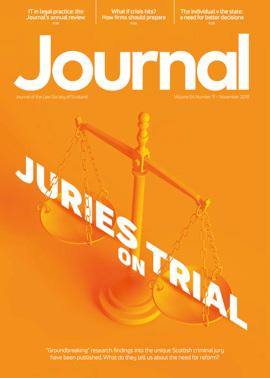Pension Scheme Act - sometime soon?

Whilst the upcoming general election has halted the progress of the Pension Schemes Bill announced in the Queen’s Speech, with cross-party support it seems likely that whatever the election outcome the bill will be taken forward.
The bill makes provision in four main areas:
Collective money purchase schemes
Parts 1 and 2 of the bill provide the legislative framework to establish and operate a new type of pension scheme to be called collective defined contribution (CDC) schemes. Contributions to such schemes are to be pooled and invested with a view to delivering an aspired-to benefit level. Fundamental to their operation is the principle that contributions into the scheme are fixed and the benefit level can only ever be a target or an estimate.
Employers are not providing a guarantee of any level of benefit, and members are expected to recognise that the benefit levels aspired to may not be achieved and that the level at which pensions are paid may fluctuate.
Royal Mail is the first employer looking to set up a CDC scheme, after getting approval to do so from its workforce in April 2018. It remains to be seen whether such vehicles will be an attractive proposition for any other employer. CDC schemes may provide an alternative to certain types of employer who wish to replace a defined benefit scheme, but who do not want to move to provision on an individual defined contribution basis. Establishment of such schemes is however likely to be limited in number.
Enhancing the Regulator’s powers
In light of experience arising in a number of high profile insolvency cases, the bill looks to enhance the Pension Regulator’s powers in a number of ways to help the Regulator meet its aims of being “clearer, quicker and tougher”, and in turn afford increased protection for defined benefit scheme members’ savings. In particular it would:
- strengthen the Regulator’s powers to issue contribution notices to recover losses caused to a defined benefit scheme as a result of certain avoidance behaviours;
- require certain persons involved in corporate transactions to make a statement setting out information about the event, and how any detriment to a defined benefit scheme as a result of such event is to be mitigated;
- introduce a more coherent set of information gathering powers.
Pension dashboards
The bill introduces a framework for provision of online services intended to allow people to access their own pension information in a clear and simple form, bringing together details of individual savings from multiple pensions, including state pension, in a single space online.
Given the number of different types of pension arrangement and benefit structures, it will be no mean feat to deliver on this goal in a way that assists savers whilst not loading unreasonable cost and risk on those involved in delivering (or for that matter the savers themselves).
Whilst much of the detail in relation to dashboard requirements is not yet available and is to be provided for under regulations, it is to be hoped that pension providers and trustees will not be required to undertake any action which will incur costs before appropriate checking and testing of the dashboard infrastructure has been made and it is clear that the dashboard will be viable.
Further provisions
The remainder of the bill sets out a number of other provisions, including:
- on scheme funding – providing for amendments to the statutory framework for defined benefit pension scheme funding;
- on transfer rights – placing conditions on
the right of a member to transfer accrued pension rights to a different pension scheme with a view to protecting them from falling victim to pension scams; - on effecting various modifications to the provisions governing the Pension Protection Fund in light of the English High Court ruling Beaton v Board of the PPF [2017] EWHC 2623 (Ch). Those changes are intended to reflect policy intent and past practice of taking account of any fixed pension resulting from a transfer in to a relevant PPF qualifying scheme for the purposes of calculating PPF compensation and applying the cap on compensation where that is relevant;
- to clarify which costs and charges fall into the overarching definition of administration charges used in certain legislation intended to protect savers from excessive pension charges.
Conclusion
Whilst much of the detail in relation to the foregoing will appear in regulations, it seems likely that there will be political will to move the bill forward after the election. It remains to be seen to what extent, if at all, a new Government will seek to make any further changes.







